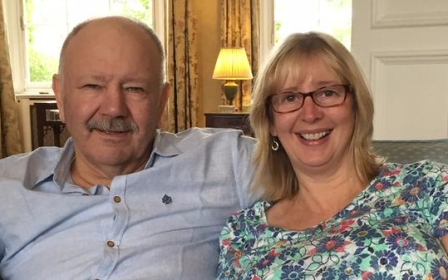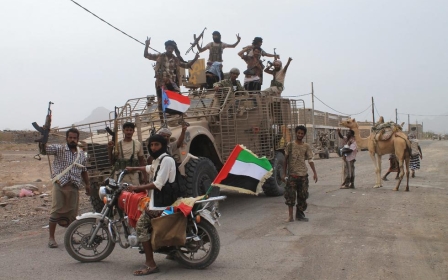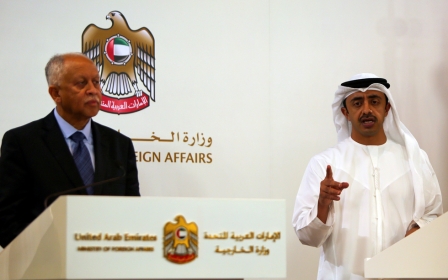UAE paid ransom to Yemeni tribesmen to free British hostage

The United Arab Emirates paid a ransom to Yemeni tribesmen to free a British held hostage, according to a source close to exiled president Abd Rabbuh Mansour Hadi.
The UAE said that on 23 August they launched a military operation to rescue 64-year-old oil worker Douglas Semple from the grips of al-Qaeda in the Arabian Peninsula (AQAP).
Semple was kidnapped at gunpoint in Yemen's eastern province of Hadramawt in February 2014 and was held captive until his return to the UK this week.
An Aden-based source told Middle East Eye on condition of anonymity that AQAP was not holding Semple hostage and that it was local tribesmen who were detaining the Briton.
The source said that the UAE did not rescue Semple through a military operation but had in fact paid a ransom to the tribesmen for his release.
The source did not reveal the amount paid by the UAE in ransom, however, a prominent Gulf commentator has on Twitter claimed that it was $25mn.
AQAP on Wednesday released a statement claiming that they had not been holding Semple hostage and accused the UAE of lying in their tale of having rescued the Briton from their clutches in Hadramawt.
Abu Dhabi has not commented on the AQAP claim, or reports that it paid a ransom for Semple's release, and on Thursday their embassy in London did not return calls for a statement.
The UAE has sought to keep its ground troops' participation in the Saudi-led military operation in Yemen low key, as the move appears to be unpopular in the Gulf state, especially following the death of a number of Emirati soldiers.
The UAE's participation in the Saudi-led offensive also appears to be in contrast to the Emirates' cosy ties until recently to Yemen's former president, Ali Abdullah Saleh, who is currently the chief ally of the Houthi militiamen.
New MEE newsletter: Jerusalem Dispatch
Sign up to get the latest insights and analysis on Israel-Palestine, alongside Turkey Unpacked and other MEE newsletters
Middle East Eye delivers independent and unrivalled coverage and analysis of the Middle East, North Africa and beyond. To learn more about republishing this content and the associated fees, please fill out this form. More about MEE can be found here.




